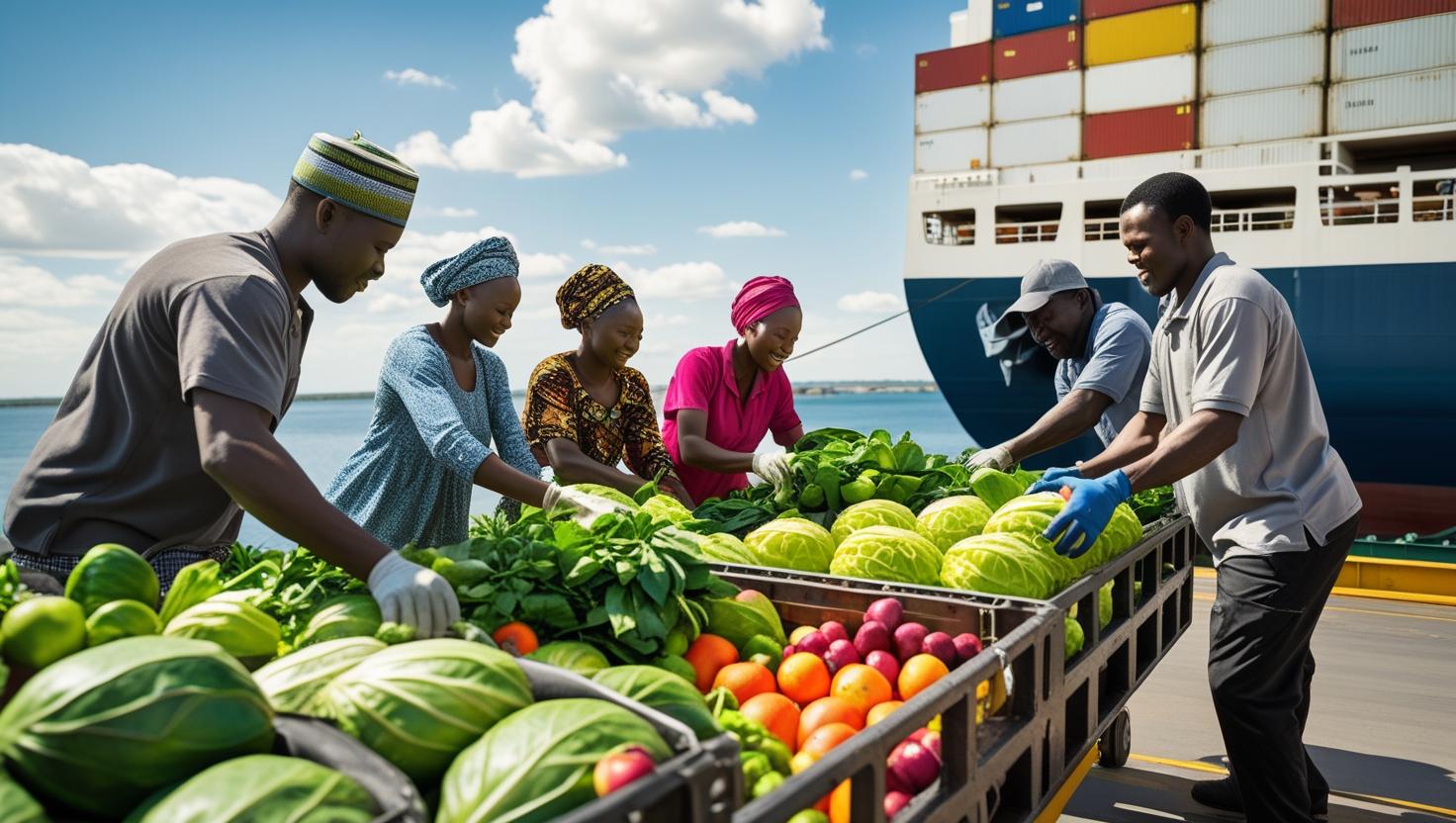
Mastering the Agriculture Ecosystem by Breaking Stereotypes: A Path to Future-Proof Farming
The agriculture sector is one of the oldest and most vital industries in the world, responsible for producing the food, fiber, and resources we rely on daily. However, despite its importance, agriculture has often been constrained by outdated stereotypes that hinder progress and innovation. These stereotypes, which have lingered for decades, present agriculture as a static industry and paint a picture of farmers as traditionalists stuck in the past. In reality, agriculture has undergone a massive transformation and is at the forefront of adopting new technologies and sustainable practices.
Breaking these stereotypes can help unlock the potential of agriculture, leading to a more resilient, efficient, and sustainable ecosystem. In this post, we’ll delve into how shaking off old misconceptions can help redefine farming, promote sustainability, foster inclusivity, and pave the way for future-proof food systems.
Rethinking the Image of a Farmer: Diverse, Dynamic, and Driven
The stereotypical image of a farmer is often outdated and narrow. For many, it’s still that of an older, male farmer managing a large plot of land in a rural area. This image overlooks the incredible diversity in the agricultural industry today. The face of farming has changed dramatically over the years. Women, young people, and individuals from various ethnic backgrounds are increasingly taking up farming as a career and contributing to agricultural innovation.
The growing presence of women in agriculture is one of the most significant shifts in the industry. Women farmers are not only taking on traditional roles but are also pioneering new farming techniques and leading the charge for sustainable practices. In many parts of the world, women represent the backbone of agricultural labor, yet their contributions often go unnoticed. By empowering women and offering them greater access to resources, we can unlock untapped potential for agricultural innovation and social progress.
Moreover, younger generations are stepping in to replace retiring farmers, often with fresh ideas and a passion for combining agriculture with new technologies. The rise of urban farming, community-supported agriculture, and small-scale innovative farming projects is evidence that agriculture is no longer just a rural profession but an opportunity for individuals from diverse backgrounds to make an impact.
By challenging the stereotype of farming being an exclusive or traditional occupation, we open doors for more dynamic participation from a broader demographic, which strengthens the entire agricultural ecosystem.
Technological Advancements: The New Face of Agriculture
The misconception that farming is technologically stagnant is perhaps one of the most damaging stereotypes in the agriculture industry. While agriculture may have once relied on rudimentary tools and manual labor, the modern farming landscape is brimming with technological innovation.
Today, cutting-edge technologies such as drones, artificial intelligence (AI), big data analytics, and automated machinery are transforming the way farmers approach crop management, pest control, and resource use. These tools have made it possible to maximize efficiency and productivity while reducing the environmental footprint of farming.
For example, AI-powered systems can analyze soil health and predict optimal planting and harvesting times, ensuring that crops grow in the best conditions. Similarly, drones equipped with sensors can monitor crop health, detecting issues like nutrient deficiencies or pest infestations in real-time, allowing for more targeted interventions. These innovations enable farmers to reduce waste, conserve water, and optimize inputs like fertilizers and pesticides, promoting both productivity and sustainability.
The shift towards precision agriculture, which uses data to guide farming practices, also enables farmers to make better-informed decisions. This reduces risks, increases profitability, and leads to more sustainable land management practices. By breaking the stereotype that farming is outdated, we can promote the widespread adoption of these transformative technologies and help farmers adapt to modern challenges like climate change and food security.
Sustainable Farming: From Harmful to Helpful
Another common stereotype about agriculture is the idea that farming is inherently harmful to the environment. While it’s true that certain practices, such as monoculture farming and excessive use of chemical fertilizers and pesticides, have contributed to environmental degradation, this view fails to account for the strides being made in sustainable agriculture.
Modern farmers are adopting regenerative and sustainable farming practices that improve soil health, increase biodiversity, and minimize environmental impact. Practices like no-till farming, cover cropping, crop rotation, and agroforestry are all ways in which farmers are not only reducing their carbon footprint but also rebuilding ecosystems.
Regenerative agriculture, in particular, has gained significant attention for its potential to reverse some of the damage caused by conventional farming. By focusing on soil health and creating farming systems that work in harmony with nature, regenerative practices can sequester carbon in the soil, reduce water consumption, and enhance biodiversity. These methods promote resilience against climate change, ensuring that food systems remain stable and productive even in the face of extreme weather events.
The stereotype that farming is inherently environmentally destructive is not only misleading but also counterproductive. By promoting sustainable practices and technologies, we can ensure that agriculture becomes a solution to, rather than a cause of, environmental challenges.
Breaking Barriers in Food Security and Global Challenges
As the global population grows, food security has become one of the most pressing issues of our time. There is a common stereotype that food insecurity is the result of insufficient agricultural productivity or poor farming practices. While these factors may play a role, the issue is far more complex and involves social, economic, and logistical barriers that need to be addressed on a global scale.
Breaking the stereotype that food security is solely a product of agricultural efficiency can lead to a more comprehensive approach. It involves improving access to food, reducing food waste, and creating equitable food systems that benefit all people. Innovations in vertical farming, aquaponics, and sustainable protein sources (such as plant-based or lab-grown meat) are key to addressing food scarcity, especially in urban areas.
Additionally, climate change poses a significant threat to food security, and the agricultural sector must become more resilient to these changes. By focusing on climate-smart agriculture—methods that reduce the negative impact of climate change while increasing food production—we can ensure long-term food security. This approach also includes developing drought-resistant crops, improving water-use efficiency, and creating systems that are resilient to extreme weather patterns.
Breaking the stereotype that farming is purely about land and crops alone allows us to explore innovative solutions to global challenges, fostering a holistic approach to food security and environmental sustainability.
Educating the Next Generation of Farmers
For the future of agriculture to be successful, it’s essential to address the outdated educational models that reinforce stereotypes. Agricultural education must evolve to embrace new technologies, sustainable practices, and interdisciplinary approaches. Students of agriculture need to be equipped with the skills to manage high-tech farms, understand the environmental impacts of their practices, and work collaboratively across sectors.
Programs that combine agricultural science with technology, data analysis, and environmental studies can help create the next generation of innovators who are prepared to tackle the challenges of tomorrow. Moreover, online platforms, workshops, and agricultural extension programs can bridge the knowledge gap, allowing farmers at all levels to stay up-to-date with the latest trends and techniques.
Agricultural education should not only be about traditional farming methods but should also emphasize the importance of environmental stewardship, economic sustainability, and global collaboration. In doing so, we can encourage a new generation of farmers to embrace the future of agriculture with confidence and creativity.
Conclusion: The Future of Agriculture is Now
The agriculture ecosystem stands at a crossroads. By breaking away from outdated stereotypes and embracing modern technology, sustainability, and inclusivity, we can reshape the future of farming and food production. The agriculture industry has proven time and again that it can adapt and evolve, and it is crucial that we continue to encourage innovation, foster diverse participation, and invest in sustainable practices.
Mastering the agriculture ecosystem requires us to challenge the stereotypes that have held the industry back for so long. By doing so, we can ensure that agriculture remains a vital, dynamic, and sustainable part of our global economy, capable of feeding the world and protecting the environment for generations to come.


